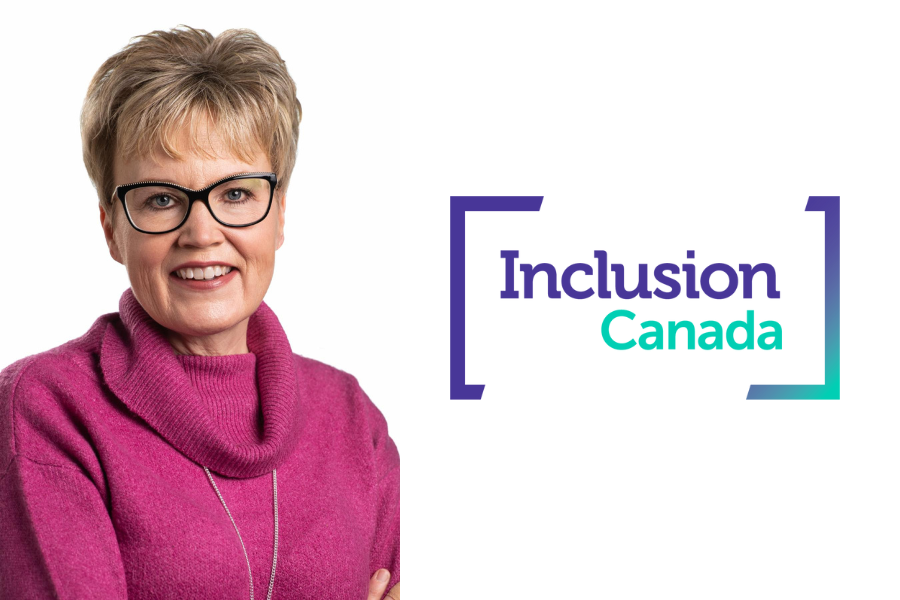
As published on August 19, Inclusion Canada Executive Vice President Krista Carr wrote an op-ed for The Hill Times discussing the Canada Disability Benefit (CDB). We have made this important document available here for the community to read.
An opportunity to fulfil a promise: the Canada Disability Benefit
The Canada Disability Benefit Act was passed unanimously in Parliament with all-party support. It is every party’s responsibility to fulfill its promise. In 2023, the historic passing of the Canada Disability Benefit Act offered a significant promise: provide people with disabilities with desperately needed financial support to lift them out of poverty.
Yet, Budget 2024 and proposed regulations reveal a troubling truth: the Canada Disability Benefit (CDB) in its current form will not deliver on this promise.
Poverty is a harsh reality for many Canadians with intellectual disabilities. A staggering 73 per cent of adults with intellectual disabilities between 18 and 64 who live outside the family home live in poverty. This is a result of systemic failures and inadequate support from all levels of government. People are frequently legislated into poverty through policies that fail to uplift important members of our community. But it doesn’t have to be this way.
The CDB offers a critical opportunity to combat ableism and address the systemic inequality that keeps people with intellectual disabilities trapped in poverty. With adequate support, people with intellectual disabilities can and do thrive. Proper financial assistance, support to find and maintain employment, and policies that facilitate full inclusion and equal opportunity allow people to reach their full potential and lead fulfilling, independent lives.
Unfortunately, the proposed regulations fall woefully short of this vision.
The maximum proposed benefit is $2,400 annually, or $200 monthly. The amount recommended by the disability community was a minimum of $2,400 monthly or $28,800 annually. Considering the systemic barriers related to financial security, employment, housing, healthcare, and education that people with disabilities face, an extra $200 a month is unlikely to lift anyone out of poverty.
Using the Disability Tax Credit as the avenue for eligibility is another significant flaw. Its stringent and exclusionary criteria will leave many people in need without access to the benefit. The government estimates the benefit will lift about 25,000 people out of poverty. However, there are 1.5-million people with disabilities living in poverty. Moreover, the income threshold is set at $23,000 for a single person, with the benefit reduced by 20 cents for every dollar earned above this. The average poverty line across Canada—measured by the Market Basket Measure—is $26,781.03. Reducing a poverty reduction benefit before reaching the poverty line is illogical, and ignores the intention of the benefit.
Additionally, the proposed regulations would allow a single person to earn up to only $10,000 of employment income exempt from the calculation of their benefit amount. Such a low exemption discourages work, further perpetuating a cycle of poverty.
It’s clear that without changes to the proposed regulations, the CDB will not be the transformative benefit that is needed.
But despite these current shortcomings, there is hope. The passing of this act has embedded the benefit into Canada’s social safety net, laying the foundation for poverty reduction and inclusion. The promise it holds is immense.
There remains a real opportunity to lift persons with disabilities out of poverty, just as Old Age Security and the Guaranteed Income Supplement for seniors, and the Canada Child Benefit for families with children have laid a foundation, despite needing further enhancement to fully achieve their goals as well.
There is still time to make meaningful improvements. Inclusion Canada believes three changes are essential to fulfill the promise that was made:
- Increase CDB so that in combination with provincial/territorial income benefits recipients receive a minimum of $2400 monthly.
- Expand eligibility beyond the Disability Tax Credit. This will ensure more people who need the benefit receive it. Start by automatically qualifying anyone currently receiving provincial/territorial disability benefits.
- Ensure CDB is not clawed back from other federal or provincial/territorial disability supports.
These necessary changes will allow recipients to live above the poverty line, and gain the full intended support without penalty for receiving other assistance.
The Canada Disability Benefit Act was passed unanimously in Parliament with all-party support. It is every political party’s responsibility to fulfill its promise. The question that remains going into a federal election year is how will each party commit to improving the benefit?
Canadians with disabilities are waiting. There is an opportunity before us to do better. We must seize on this opportunity and deliver a benefit that not only lifts people out of poverty, but enables them to thrive and prosper. Canadians with disabilities deserve nothing less.